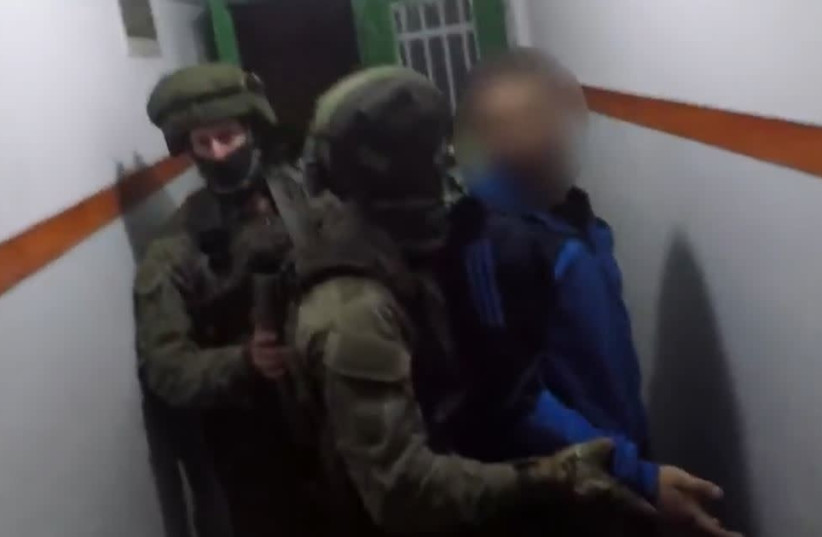The recent Islamic State-inspired terrorist attacks in Israel do not represent a trend in the Arab-Israeli community, according to several Arab citizens, political activists and leaders.
They expressed hope that the last two terrorist attacks, in Beersheba and Hadera, would not have a negative impact on relations between Jews and Arabs.
They also said they believe these were “isolated incidents” that are opposed and condemned by the vast majority of Arab citizens.
No one knows exactly how many Arab citizens have pledged allegiance to the Islamic State (ISIS) terrorist group.
However, scores of Arab citizens who traveled to Turkey over the past decade are believed to have either joined or made an attempt to join ISIS.

“Some Arab citizens fell into the trap of ISIS and were radicalized by them since the start of the Syrian civil war [in 2011],” Mohammad Darwashe, director of strategy at the Givat Haviva Center, told The Jerusalem Post.
These Arabs are “individuals who have been misled and seem to have their life priorities mixed up, without understanding the particularity of our life as Arab citizens,” he said.
Terrorist attacks carried out by Arab-Israelis do not serve the interests of the Arab community, Darwashe said.
“Clearly, these terrorist attacks that serve a foreign agenda do not serve our interests at all, but harm them completely and damage our relationship with our fellow Jewish-Israeli citizens,” he said.
Darwashe said he and other Arab-Israeli leaders did not believe the terrorists represent many in the Arab community.
“I do not see this as a phenomenon,” he said. “Rather, it is individual actions that do not represent a trend in our community. Arab citizens want to live in peace with Jews as equal partners in society.”
Darwashe took the Israeli authorities to task for failing to have “better supervision” over people known for past involvement with ISIS. “Obviously, in the recent cases there was an oversight,” he said.
One of the terrorists who carried out the attack in Hadera had previously served time in an Israeli prison for his association with ISIS.
Said Abu Shakra, a political activist and cultural leader from Umm el-Fahm, said he did not believe the recent attacks reflect a growing process of radicalization among Arab citizens.
“Extremism is not on the rise,” he said. “Instead, there is a dramatic upsurge in violent crime in the Arab sector. There are many weapons that need to be collected.”
The increase in violent crime is nevertheless accompanied by many positive things that are happening in the Arab sector, where, for example, there is a sharp rise in the number of academics, Abu Shakra said.
Like many other Arab citizens, he sees a direct link between the violent crime that has hit the Arab community in the past few years and the increase in extremism.
“Many people have weapons,” he said. “Whenever they have a chance, they use these weapons against their friends and neighbors. Later, we saw that these weapons are also being used against Jews. When the weapons were directed against Arabs, no one really seemed to care. Unfortunately, the authorities are moving now because the weapons are being directed against Jews.”
Abu Shakra also blamed the security forces for neglecting the problem of violent crime in the Arab sector for many years.
“This is what happens when you neglect the problem of the illegal weapons in the Arab sector,” he said, referring to the recent ISIS-inspired attacks. “Anyone who wants to carry out an attack will not have a problem because the weapons are available.”
Abu Shakra said he knows the families of the two terrorists who carried out the attack in Hadera.
“They were never involved in political matters,” he said. “But the problem is that many people have stored all kinds of weapons, which are later used by anyone who gets upset for whatever reason.”
Abu Shakra does not believe that Umm el-Fahm, a traditional stronghold of the Islamic Movement’s Northern Branch, is moving toward religious extremism.
“Until the Hadera attack, Umm el-Fahm was a quiet and peaceful city,” he said. “I live here and I saw the reactions of the people. No one was happy to hear about the attack. Everyone is saying that this is not good for the Arabs.
“We go to universities; we go to work; we want partnership with the Jewish citizens. The attack does not reflect the general trend of partnership among our people. The two men who carried out the attack in Hadera represent only themselves. What they did also reflects the tragic reality of their life. They probably used the weapons in the past also against Arabs.”
Asked if he was worried about the spread of ISIS ideology among the Arab community, Abu Shakra replied: “There is no ISIS in the Arab sector. I truly don’t know what happened with these two men, but I do know that one of them was a known ISIS member.
“ISIS is a threat to everyone. They destroyed Iraq and Syria. It’s a dangerous terrorist group. We don’t want to see them here.”
